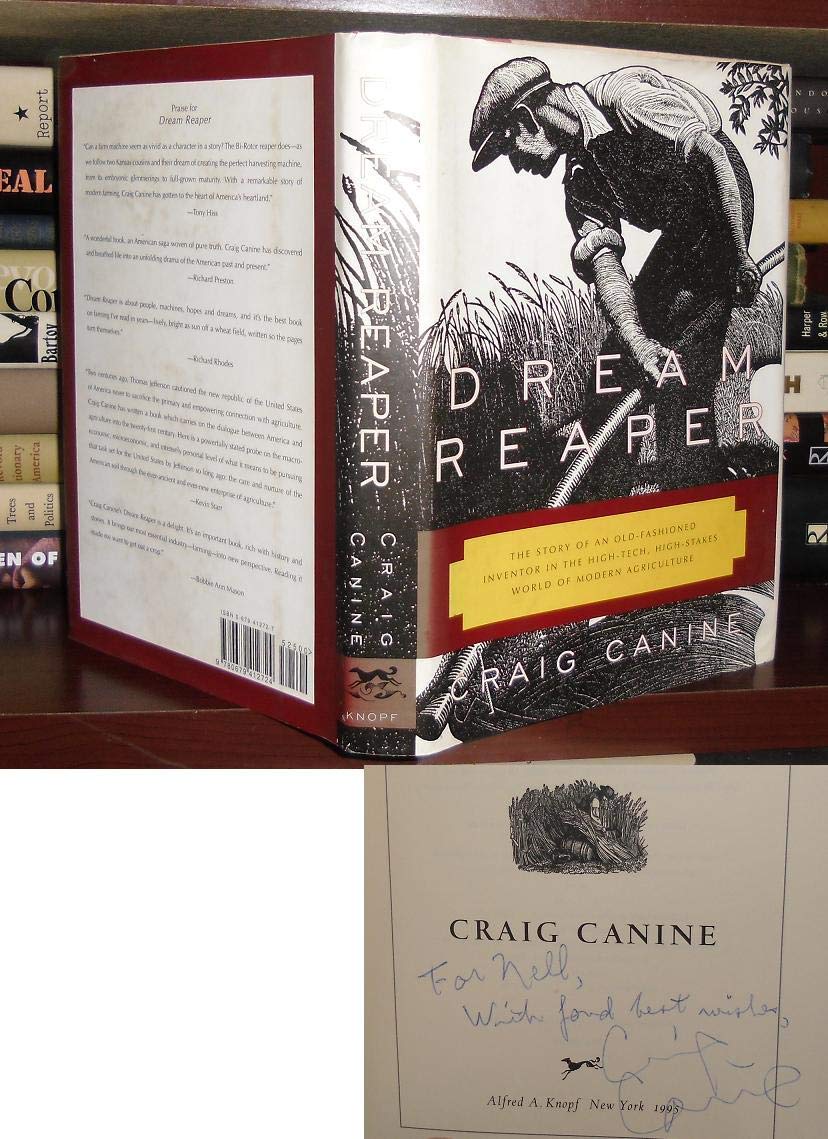Knopf
Dream Reaper: The Story of an Old-Fashioned Inventor in the High-Tech, High-Stakes World of Mo Dern Agriculture
Regular price
$7.95 USD
Regular price
Sale price
$7.95 USD
Unit price
per
Shipping calculated at checkout.
Couldn't load pickup availability
Title: Dream Reaper: The Story of an Old-Fashioned Inventor in the High-Tech, High-Stakes World of Mo Dern Agriculture
Author: Craig Canine
Technology & Engineering: 1697205
ISBN: 9780679412724
Publisher: Knopf
Published: 1995
Binding: Hardcover
Language: English
Edition: 1
Section: Business & Economics | Industries | General
Condition Note: Clean, unmarked copy with some edge wear. Good binding. Dust jacket included if issued with one. We ship in recyclable American-made mailers. 100% money-back guarantee on all orders.
Publisher Description: To all outward appearances, Mark Underwood is an ordinary Kansas dirt farmer, but in fact he is a mechanical genius, a Thomas Edison of agriculture who has built a revolutionary new reaper that someday may change the way grain is harvested throughout the world. Mark and his cousin Ralph Lagergren, a salesman and marketing specialist, have pooled their disparate talents to bring Mark's reaper to market. Dream Reaper is the story of the Bi-Rotor combine - from paper nearly to production line - a suspenseful, ongoing thirteen-year saga in which the cousins encounter all the obstacles that any inventor faces: the complexities of raising capital and obtaining patents, the technical glitches, the obligatory secrecy, and the toll that any consuming obsession takes on one's private life. Craig Canine, who followed the cousins and their Bi-Rotor team closely for four years, gives us as well the historical context for the phenomenon of Whitey: the enormous changes that America has gone through as it has come of age on the farm and moved to the city. He recounts the reaper wars between Mark's nineteenth-century "ancestors, " the inventors Cyrus McCormick and Obed Hussey; the "tractor battles" between Henry Ford and International Harvester; and that legacy of the chemical warfare production of World War I, the modern pesticide. He shows us how these inventions transformed the Jeffersonian ideal of an agrarian society, and led to the creation of agribusiness and to a manufacturing industry dominated today by a few giant corporate players where once there were hundreds of small competitive firms an industry that, ironically, is dauntingly inhospitable to the maverick inventor.

